Olympic Gold Medal swimmer – Cullen Jones
While net-surfing ran across a news story which has wing-nuts all a flutter, promoted on Faux news by resident twit Tucker Carlson and Crystal Wright, his black Republican female sidekick, as yet another excuse to attack affirmative action, and to spread falsehoods. What struck me was the headline on the story which blared in all caps:
“AFFIRMATIVE ACTION GONE WILD – AZ TO HIRE LIFEGUARDS WHO CAN”T SWIM”
Turns out that is not the case.
Numerous right-wing blogs not only bashed Phoenix for perceived reverse racism, but added an error to the story by stating that minorities were recruited as lifeguards even if they couldn’t swim.
Following the story kicked up a lot of memories for me, about stereotypes, rooted in pseudo-science. I grew up in a time when I can remember being told blacks couldn’t run long distance races, only sprints. It was “genetic.”
Oh wait… um…I think we’ve put that one to rest.
Yeah. We couldn’t play tennis, or chess, or fence, or golf, or at one point in time be in the major leagues of baseball.
How’s that working out?
But the story did lead me to an article, in USA Today that contained stats that are very troubling.
Black children drown at a rate almost three times the overall rate. And less than 2% of USA Swimming’s nearly 252,000 members who swim competitively year-round are black.
The article highlighted a recent study:
USA Swimming commissioned an ambitious study recently completed by five experts at the University of Memphis’ Department of Health and Sports Sciences. They surveyed 1,772 children aged 6 to 16 in six cities – two-thirds of them black or Hispanic – to gauge what factors contributed most to the minority swimming gap.
The study found that 31% of the white respondents could not swim safely, compared to 58% of the blacks. The non-swimming rate for Hispanic children was almost as high – 56% – although more than twice as many Hispanics as blacks are now USA Swimming members.
…
The minority swimming gap has deep roots in America’s racial history. For decades during the 20th century, many pools were segregated, and relatively few were built to serve black communities.
John Cruzat, USA Swimming’s diversity specialist, said these inequalities were compounded by a widespread misperception – fueled by flawed academic studies – that blacks’ swimming ability was compromised by an innate deficit of buoyancy.
“There are people who still give credence to these stereotypes, even in the black and Hispanic community,” said Cruzat, who wants to break the cycle that passes negative attitudes about swimming from one black generation to another.
“These long-held beliefs are still so potent,” he said. “If you don’t teach your children to swim, you’re putting your grandchildren at risk.”
Growing up, I was a strong swimmer. My dad used to brave the undertow out at Jones Beach on Long Island and swim for about an hour every time we headed to the beach. He taught me to swim. (I have to admit, my mom didn’t learn to swim till she was over 50. She never wanted to get her hair wet). I was a member of the local Y, and was a junior lifeguard.
When I went to the beach with friends, as a teenager we hung out at Jacob Riis beach, where a lotta guys from my neighborhood went to play basketball.
At Jacob Riis Park on the Rockaway Peninsula in Queens probably the greatest “pick up” games in the world take place. On a typical Sunday afternoon last summer one might find a game going on involving Lew Alcindor, Willis Reed, Dave Stallworth, Sonny Dove, Em Bryant and (Jim) McMillian.
Those who weren’t playing ball used to swim, and many of the lifeguards were black and Puerto Rican-they were on the swim team from my Queens neighborhood H.S., Andrew Jackson. I will note that a lot of schools in urban areas don’t have pools. Andrew Jackson was in what had been a white Queens suburban community.
So I never really thought about this. Yeah-there were some city pools-packed with splashing kids, but they really weren’t about swimming. Overcrowded, they were about beating the heat.
So the idea that if you are black, somehow you are gonna sink like a stone – had me bemused.
But our kids are drowning more. And as pointed out above, it is rooted in U.S. racial history, and other factors, which are being addressed by “Make A Splash“, which is a really great program.
In 2009, the USA Swimming Foundation launched its Make a Splash Tour with Cullen Jones, presented by Phillips 66. After nearly drowning at the age of five, Cullen Jones overcame his fear of water to win a gold medal at the 2008 Beijing Olympics. He was also the first African-American male to hold a world record in swimming. By sharing his message over the last three years, Cullen has been able to convey the message of water safety and education to a wide audience of parents, learn-to-swim providers, educators and community leaders.
With the common goal of promoting the importance of learn-to-swim and water safety, the Make a Splash Affiliate Coalition is comprised of aquatic industry leaders and community organizations who have joined forces with the USA Swimming Foundation to bring awareness and support to our Make a Splash initiative.
Through our Make a Splash Local Partner Program, the USA Swimming Foundation partners with learn-to-swim providers nationwide to offset the cost of swimming lessons and educate communities about the importance of learning how to swim.
The USA Swimming Foundation, in collaboration with our Make a Splash Local Partners, have provided more than 177,500 scholarhips for learn-to-swim and water safety programs since 2007 and has granted $2.5 million to provide free or reduced cost swimming lessons to children who may not otherwise have the chance. To date, more than 1.7 million kids have received the life-saving gift of swim lessons through our Local Partner network, comprised of more than 595 qualified lesson providers across the nation!
Funny, but when I thought about the genetic stereotypes, I had to shake my head. I’ve been a long time fan of summer sports and watch the Pan-Am games and summer Olympics faithfully. I’ve been to track meets and swim meets. Lots of the swimmers I’ve seen in the Pan Am games are Black and Latino. Most don’t get high visibility in our neighborhoods.
Here’s a sample:
Maritza Correia (born December 23, 1981) is an Olympic swimmer from the United States. When she qualified for the USA Olympic Team in 2004, she became the first Puerto Rican of African descent to be on the USA Olympic Swimming Team. She also became the first Black United States swimmer to set an American and World swimming record
Bradley Ally, from Barbados.
Alia Atkinson from Jamaica
Brett and Shaune Fraser, brothers from the Cayman Islands
Lest we think that the issue of pool segregation is something out of a Southern Jim Crow past, it wasn’t too long ago that we read stories about the racial discrimination at a Philly swim club.
Summer is coming (soon I hope). If you have kids or grandkids, make sure they learn how to swim.
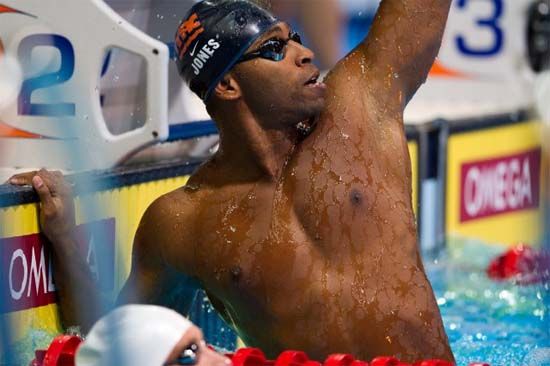
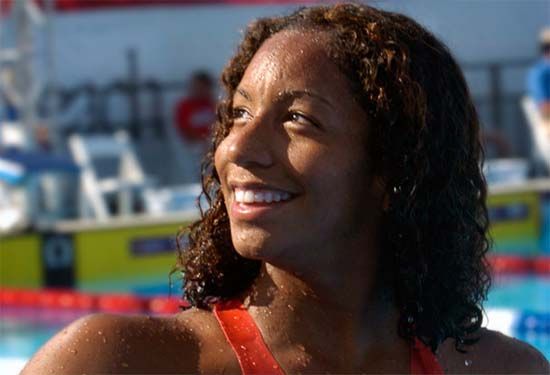
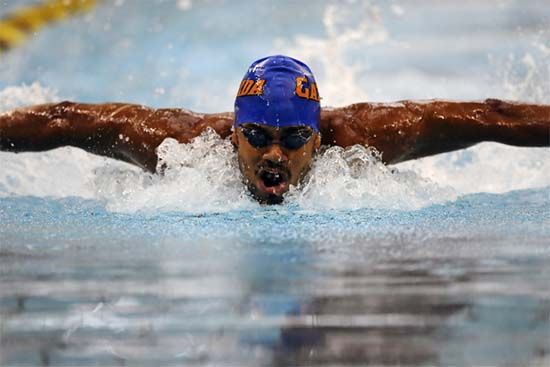
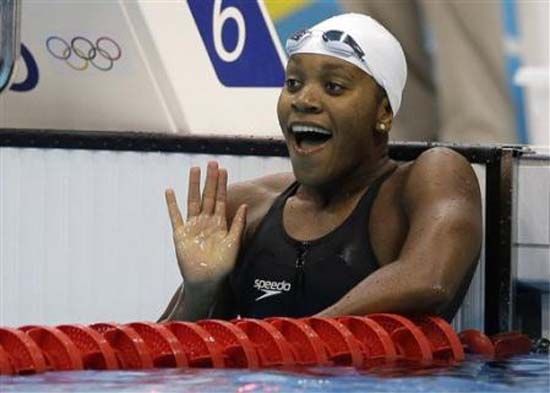
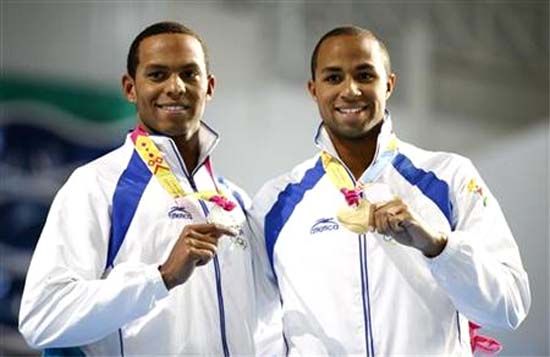
18 comments